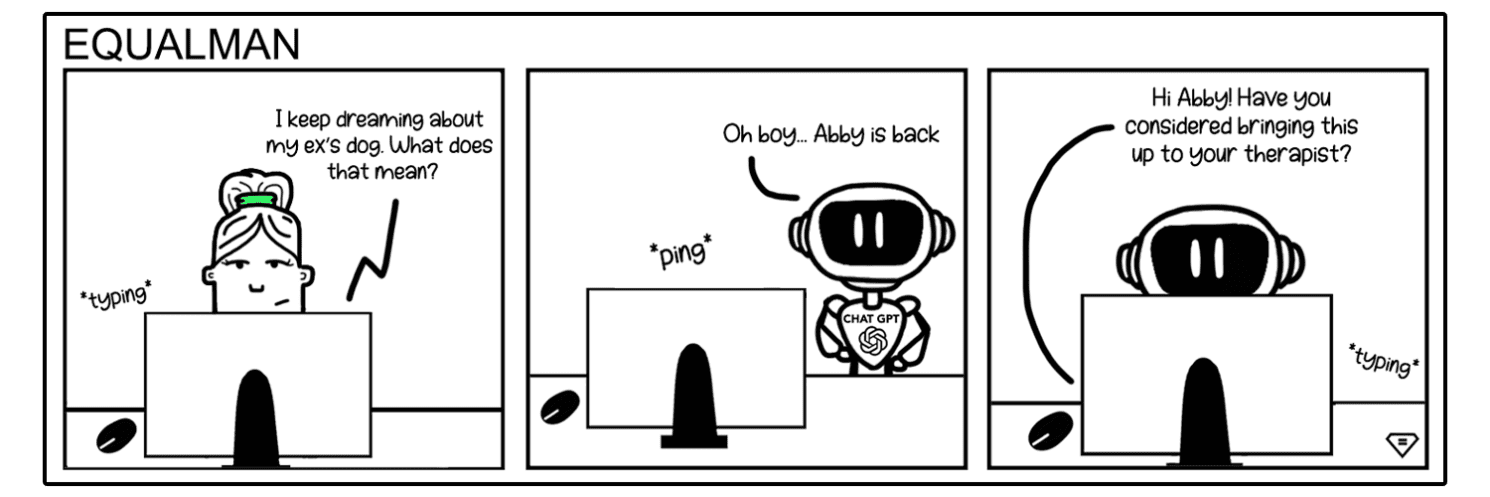Super U Podcast | 7 Super Tips with Taylor Swift
Taylor Swift is an American singer-songwriter. Her discography spans multiple genres, and her narrative songwriting, which is often inspired by her personal life, has received widespread media coverage and critical praise. Having sold over 200 million records worldwide, Swift is one of the best-selling musicians of all time. She has scored eight Billboard Hot 100 number-one songs, and won 11 Grammy Awards (including three Album of the Year wins), an Emmy Award, 34 American Music Awards (the most for an artist), and 55 Guinness World Records, among other accolades. She featured on Rolling Stone‘s 100 Greatest Songwriters of All Time (2015) and Billboard‘s Greatest of All-Time Artists list (2019), also appearing frequently on rankings like Time 100 and the Forbes Celebrity 100. Named the Woman of the 2010s Decade by Billboard and the Artist of the 2010s Decade by the American Music Awards, Swift has been recognized for her influential career as well as advocacy of artists’ rights and women’s empowerment in the music industry.
5x #1 Bestselling Author and Motivational Speaker Erik Qualman has performed in over 55 countries and reached over 50 million people this past decade. He was voted the 2nd Most Likable Author in the World behind Harry Potter’s J.K. Rowling.
Need a sneak peek? Below are the main takeaways from the episode.
Super U Podcast | 7 Super Tips with Taylor Swift:
[4:14] Tip #1
“There is there doesn’t have to be loneliness and being alone and you can find romance in your life, even if you aren’t involved in a romance. You know, life can be beautiful and spontaneous and surprising and romantic and magical without you having some love affair happening. And you can replace all of those feelings you used to have when you were enamored with someone with being enamored with your friends and enamored with learning new things and challenging yourself and living your life on your own terms. I never understood it when people would say, oh, you know, in your 20s you just need to be alone. And I just I never quite got it because they would never explain to me that it’s so important to define yourself on your own terms. You think about it when you’re in love. That person’s opinion affects your opinions. And everything you do goes through this filter of how would they feel about it. Because if you’re a caring person and you’re in love, then that’s what you do. But there’s something really wonderful about changing your life if you want to cutting your hair short, if you want to move to New York if you want to change directions of your entire creative outlook if you want to, and having it only be on your own terms.”
[6:08] Tip #2
“In the last 10 years I have watched as women in this industry are criticized and measured up to each other and picked up for their bodies, their romantic lives their fashion? Or have you ever heard someone say about a male artist? I really like his songs. But I don’t know what it is. There’s just something about him. I don’t like knowing that criticism is reserved for us, I’ve learned that the difference between those who can continue to create in that climate usually comes down to this, who lets that scrutiny break them. And who just keeps making art, we have to work this hard, we have to prove that we deserve this. And we have to top our last achievements. Women in Music, on stage, or behind the scenes are not allowed to coast. We are held to a higher, sometimes impossible feeling standard. And it seems that my fellow female artists have taken this challenge and they have accepted it. It seems like the pressure that could have crushed us medicine to diamonds instead. And what didn’t kill us actually did make us stronger.”
[7:39] Tip #3
“Yes, and no, I think that looking back on my career, there have been so many different musical phases and you know, different things I wanted to wear at different times and they fit my life at the time. And so I think that you’ve got to allow yourself that grace to put on a certain lifestyle or a certain outfit or a certain creative mantra, and then discard it when you outgrow it. This is was weird, though, because this evermore was the first time I didn’t discard everything. After I made something new. You know, it was weird, I actually had to kind of fight off the anxiety that I had in my head like a fear that was like, You need to change. The demons are here like you need to change. You can’t you can’t stay in the forest. I was like I want to stay in the forest.”
[9:27] Tip #4
“Yes, and never more so than with the process of these two albums. Honestly, this is one of those things where I’ve kind of had to just sort of throw out any playbook I had, you know, just in times like these when everything is uncertain, and everything changes in your world. I guess I just sort of took it as an opportunity to embrace the fact that even if you think you have control in normal times, that’s an illusion. If you’re making stuff put it out if people need music and you’ve made music, put it out, you know, there was a time at the beginning of the process where I was like, I will wait till January when things are looking more normal than I will put out folklore. And I was like, That’s my old brain. That’s my old brain thinking that there’s any way that I can control this. And, you know, humans do need to have some sort of strategy when they go into putting out you know, music or doing any business whatsoever. But as much as that has an ability to fall by the wayside it did with this because there was no way to make it and feel in control. You can’t, you’ve got to just let fate do what’s going to do with something like this. And, and I do talk to Aaron and Jack about this a lot. Because we do feel sort of like this was a whirlwind. We don’t understand it. Our logical brains don’t comprehend it. And we know it’s, you know, you guys make albums, of course, you put out albums all the time, whatever. But this feels different for us. It does, it feels like something that will affect the rest of our lives. And the way that we make art and not being too precious, we actually really weren’t very precious about this. We weren’t too picky, you’re or oh, it has to be everything has to be perfect. Like, No, nothing’s going to be perfect right now. Music that that? Yeah, how does it feel, and I’m so happy that people welcomed it into their lives the way that they did.”
[11:46] Tip #5
“no idea what the next decade holds. And I think that’s kind of something I’m gonna keep. I’m gonna keep that like it is because I was always such a planner and such a list maker and list of dreams and goals and things I wanted to do. And I think my new list will be like places I want to see in the world. Adventures, I want to have experiences I want to have things I want to learn. I think that’ll be what the list looks like. Because, you know, there’s always gonna be a list. It’s me, you know, but it will be lists of in quarantine my list was I decided to start trying to cook everything that I’d always love to eat, but never been able to cook. So there’s always a list.”
[12:54] Tip #6
“Well, it’s not just from a business perspective, it’s from, it’s like, your heart belongs in that art that you made, you know, and in the person who bought my art, he’s never made any art in his life. So he doesn’t know what it’s like that he could never understand that personal connection when you make something, and then someone buys it out from under you. That’s just, I don’t think that a lot of people understand that. That’s how our business works. Yeah, they think we own what we make. So I think it’s interesting to get that out there in case there are so many people who want to be musicians. And they need to learn these things. Because I didn’t know these things when I was a teenager. And if I can say something loudly, that somehow absorbs in people’s consciousness that they need to really stand up for themselves, and they need to fight for their right to own their work. It’s not going to be given to them, people are going to try to take it from them their whole career. So they need to, they need to know what’s theirs.”
[14:19] Tip #7
“I think after a while, you just realized that it’s part of the job. You know, there are a lot of things that I tell myself when I’m kind of panicking. And one of the things that I tell myself is like, this is part of it. This is normal. And that’s something that I tell a lot of new artists and a lot of people who I end up talking to who are like, hey, so you’ve been through a lot. I’m freaking out. I’m getting my first wave of bad press, what do I do? And I’m like, do not let anything stop you from making art. Just make things do not get so caught up in this, that it stops you from making art or if you need to make art about this but never stop making things. This has happened several times, so I can’t like, you know when I was like 23. And people were just like, kind of reducing me to, like, kind of making slideshows of like my dating life and putting people in there that I’d sat next to at a party once and deciding that my songwriting was like a trick, rather than a skill and a craft, kind of, it’s a way to take a woman who’s doing her job, and succeeding at doing her job and making things. And it’s, it’s in a way, it’s, it’s figuring out how to completely minimize that skill, by taking something that everyone you know, in their darkest, darkest moments loves to do, which is to slit shame. And so now when I see this happening, I can see a headline about a young artist about a young female artist about like another breakup, and it makes it spent, it sends me into a real sad place, because I don’t want that to keep happening. And I don’t think people understand how easy it is to infer that someone who’s a female artist, or a female in our industry, is somehow doing something wrong by wanting love, wanting money, wanting success, women are not allowed to want those things, the way that men are allowed to want them, you know, every step of my career, there’s been, you know, people questioning whether I deserve to be there. So I feel like my whole career up until very recently was spent trying to prove myself to those people and trying to prove that I that I belong here that I’m going to work hard enough that I’m going to, I’m going to make music that’s good enough to belong here. And, you know, I’ve had people standing up and saying you don’t, you don’t deserve to be here, either very loudly, or you know, comments or whatever. But, you know, that’s part of life.”
Click here to subscribe and listen to the full episode.
Connect with Taylor Swift:
Instagram: @TaylorSwift
Twitter: @TaylorSwift13
Facebook: https://www.facebook.com/TaylorSwift

To ensure you don’t miss future episodes, subscribe to our podcast by clicking here >> Super U Podcast. We hope these tips help unlock and unleash your inner superpower!
The Super U Podcast is hosted by #1 bestselling author and Motivational Speaker Erik Qualman.





